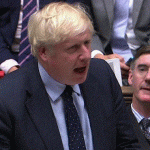MPs will vote today on the government’s proposal to increase National Insurance to pay for health and social care.
Prime Minister Boris Johnson announced a 1.25% increase in National Insurance (NI) Contributions, dubbed the “health and social care levy,” as well as a corresponding increase in divided tax rates.
Over the next three years, this is estimated to raise £36 billion, the most of which will be spent on the NHS, with an additional £5.4 billion for adult social care.
According to the government’s plans, anyone with less than £20,000 in assets will not be required to contribute anything to their care costs, while those with between £20,000 and £100,000 will be eligible for some means-tested assistance. The current maximum capital is £23,250.
In addition, there will be a new £86,000 cap on how much anyone in England will have to pay for personal care over their lifetime.
Mr. Johnson acknowledged that raising the NI rate would violate a Conservative manifesto pledge, but he insisted that the government was finally addressing the issue of funding social care after decades of ‘dither and delay.’
The PM said the government would protect people ‘against the catastrophic fear of losing everything to pay for the cost of their care’.
But critics have also branded the NI rise as ‘regressive’ and a ‘tax on jobs’ which will have a disproportionate impact on lower earners.
Labour leader Keir Starmer said Mr Johnson was ‘putting a sticking plaster over gaping wounds his party has inflicted’.
Stoke-on- Trent North MP Jonathan Gullis is among those on the Conservative benches who have applauded the Prime Minister’s announcement.














